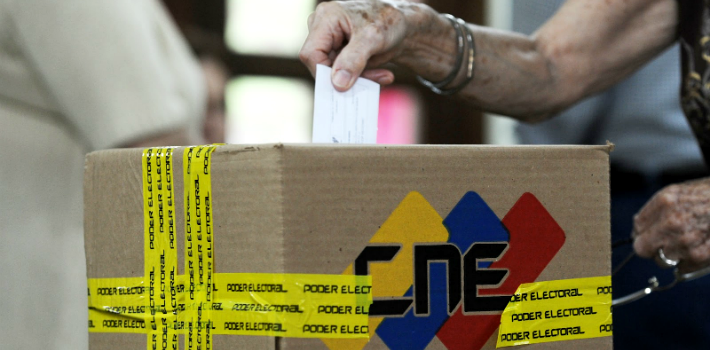
EspañolPresident Nicolás Maduro’s refusal to allow foreign observers in the country during the upcoming election on December 6 demonstrates the regime’s disdain for international oversight.
However, the president’s decision, backed by his National Electoral Council, puts the Venezuelan government in a unfavorable position within the international community, and even some of Maduro’s socialist allies are pressuring him to accept observers.
Luis Almagro, for example, the former Uruguayan Foreign Affairs minister during the José Mujica administration, called for Maduro to allow international observers as soon as he entered office as general secretary for the Organization of American States (OAS) last May.
“The OAS is willing to join in on electoral observations in Venezuela, if Nicolás Maduro accepts our participation,” Almagro said via Twitter on June 10.
Almagro has continued to offer OAS oversight without success. Venezuela rejected the offer once again on October 19. Germán Saltrón, who represents Venezuela at the OAS, said “Venezuela does not trust the OAS; the OAS has supported dictatorships, certified coup d’états and electoral fraud, and has not had any democratic practices during its operations.”
Brazil, another ally, recently withdrew from the Union of South American Nations (UNASUR) observation mission, citing a lack of response from Venezuelan authorities for an “objective, impartial, and broad” monitoring of the election. In addition, despite consensus among other UNASUR countries, Venezuela rejected renowned jurist Nelson Jobim, former Brazilian Supreme Court president and former Defense and Justice minister, as head of the mission.
Jobim would not have accepted limited and rigged oversight of the election, unlike previous UNASUR missions. In 2013, UNASUR was the only regional entity that the Maduro administration let in, and the organization played a markedly pro-government role.
So much so, in fact, that Democratic Unity Roundtable (MUD) Executive Secretary Jesus Chuo Torrealba has stated that “when the Maduro administration said they ‘would only accept observation from UNASUR,’ they really weren’t referring to the regional entity, but to a tailor-made version of UNASUR that lived up to their electoral interests.”
[adrotate group=”8″]
It seems that Maduro has not yet realized that times have changed, and Chavismo has fallen out of favor. Perhaps the Cuban regime is not advising his government well enough these days. Chavistas still haven’t realized that radicalization doesn’t pay anymore, and that they can no longer rely on the same old story that developed nations are plotting to destroy Venezuela and election observers are just a way of sneaking in.
In 2010, the National Electoral Council (CNE) removed the need for international observers from electoral law, and instead instituted “international companions.” The government imposes various restrictions on these “companions,” including prohibiting them from making any statements about the election until the CNE proclaims a winner, and mandating that their recommendations be delivered to the CNE in a classified document.
At the time, the Chavista regime did not face the sort of international pressure or criticism that it faces today. The late Hugo Chávez was still powerful then, and enjoyed massive popularity in Venezuela and abroad.
In both the 2010 and 2013 elections, the MUD and the international community had few complaints. Until 2006, the Venezuelan government allowed electoral watchdogs from the OAS, the European Union, and the Carter Center to oversee the polls.
Later, however, observers complained that the limitations the Venezuelan government imposed on them clashed with the Declaration of Principles for International Elections Observation and the Code of Conduct for International Election Observers.
Now, the situation is completely different. Venezuela’s economic, political, and social fiasco has caused the Maduro regime to lose their political leverage, power, and even the relative trust inherited from Chávez.
So, at just 40 days from the election, the Maduro administration will continue to receive pressure to allow international observers who can ensure an exhaustive, independent, and objective assessment of the entire process.
Accepting these conditions is the only way he can avoid isolation and distrust from the rest of the world.
 Versión Español
Versión Español












